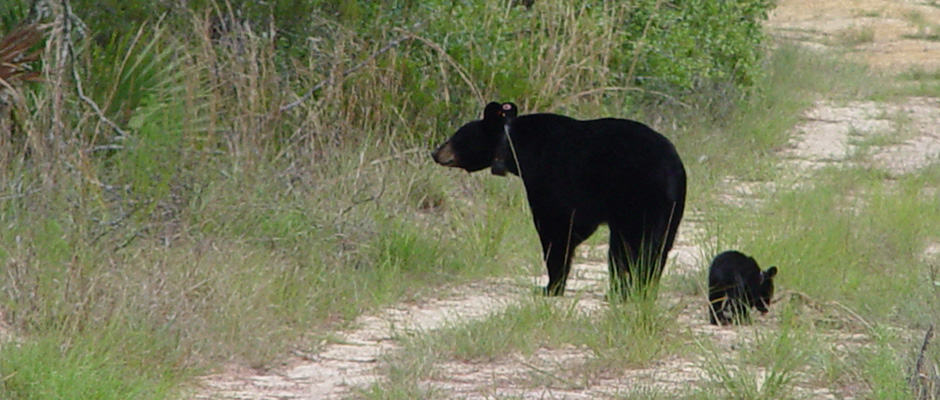Share this article
Limited Hunting of Florida Black Bears Passed
After a great deal of discussion and debate, last week the Florida Fish and Wildlife Conservation Commission (FWC) voted in favor of limited bear hunting in the state.
The new management rule, which passed with a 5-1 vote, allows for a limited hunt of the bears from October 24-25 each year with the objective of removing 20 percent of the population annually in each of the state’s seven bear management units — locations with the largest black bear populations in all three national forests as well as southern Florida.
However, if the bear harvest objective isn’t met in any of the seven designated bear management areas, the hunt could run as long as a week. Bear hunting permits will cost $100 for residents and $300 for nonresidents, and individuals are limited to one permit that allows for the harvest of one bear.
The FWC says the same method of take and shooting hours for deer will apply to black bears, but using dogs or bait to hunt bears is not allowed. Further, hunters can use game feeding stations as long as the feed isn’t what is usually used for deer or hogs, and in order to harvest a bear on private land, both the hunter and the bear must be more than 100 yards away from any game feeding station.
After hunters have harvested a bear, they will be required to take it to an FWC check station within 12 hours. Individuals at the check station will then collect information on the black bears that they will then use to inform the FWC about the current bear population in that area. As part of the new rule, it is also illegal to sell any parts of the harvested bear including its hide.
The FWC also added restrictions to the wildlife feeding rule and made changes to the bear conservation rule, which now allows landowners to apply for a permit to shoot and remove nuisance bears in certain situations. Also, trained security personnel will be permitted to scare black bears in appropriate situations, without using lethal methods, and without requiring a permit.
Educating the Public
Along with the newly approved rule, commissioners also asked FWC staff to continue to educate people on ways to minimize human-bear conflict — a critical component of black bear management, according to a recent study published in the Journal of Wildlife Management.
As part of the study, researchers set out to determine whether individuals take actions that the FWC recommends when it comes to black bears, in order to reduce or eliminate conflicts. When individuals call with bear-related issues, the FWC typically provides advice on how to manage the bears and also usually sends brochures and relevant literature. Researchers surveyed callers and found that FWC outreach efforts increased the probability that people who report conflicts to the agency adopted the recommended measures to reduce the conflicts.
“Education is key,” said FWC Chairman Richard Corbett in a press release on the new hunting rule. FWC commissioners have also signed a waste management resolution and approved a policy paper that discusses the importance of waste management to address and limit human-bear conflict. “We know that bear feeding is an issue, so we need to continue to be proactive and responsive to our efforts,” Corbett said. “Properly securing garbage and other attractants is the single most important action for reducing conflict situations with bears.”
Header Image:
A Florida black bear mother stands with her cub. Last week, the Florida Fish and Wildlife Conservation Commission voted to allow limited bear hunting in Florida as part of its new bear management rule.
Image Credit: Florida Fish and Wildlife Conservation Commission








